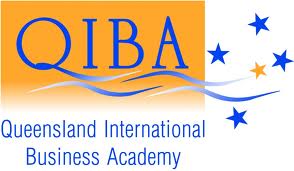- Study in AustraliaAustralian Universities/CollegesPrograms by faculty AusAustralian VisasLife in Australia
- Study In New ZealandNew Zealand UniversitiesPrograms by Faculty NZNew Zealand VisasLife in New Zealand
- Study in CanadaUniversities/Colleges in CANADAPrograms by faculty CanadaCanadian VisasLife in Canada
QIBA
| Communication, Fine Arts & Media at The University of Nebraska at Omaha | ||||||||||||||||||||||||||||||||
| | | |||||||||||||||||||||||||||||||
|
QIBA has been a pioneer in the ELICOS (English Language Intensive Courses for Overseas Students) industry in Australia. QIBA Managers were major contributors to the development of the Queensland Migrant Education program in the 1980s and in the early 1990s established one of the first private ELICOS institutions on the Gold Coast. For the last 18 years, QIBA has been at the forefront of the International Education industry through representation on government steering committees, involvement in academic research and managing major education projects in Japan, Malaysia, New Caledonia and China. This extensive experience with curriculum development, teacher training and off-shore program delivery is evident in the professional depth and quality of the English Language programs today. | ||||||||||||||||||||||||||||||||
|
| ||||||||||||||||||||||||||||||||
| | ||||||||||||||||||||||||||||||||
| General English Program This is a program of English language development and integrated skill practice for international students, who require a higher level English proficiency for:
Cambridge First Certificate in English Exam Preparation*
ENGLISH for BUSINESS COMMUNICATION (EBC) This program is delivered to select groups of international employees, who work in businesses where English is growing in importance. The program is also suited to those international students, who are preparing for global employment in local universities or business schools. The EBC course combines stimulating ideas and scenarios from the current (global) business world with a strong task-based language learning approach, using real life business case studies. This methodology is based on the CLIL philosophy (Content and Language Integrated Learning), where business content is taught through the medium of language still being learnt. The advantage of this program over conventional Business Studies is that there are no specific entry requirements or language proficiency barriers. Learners are supported alongside the subject specialisation. (*Suitable only for minimum groups of 10 participants by prior arrangement) English for Business Communication Course Aims:
| ||||||||||||||||||||||||||||||||
| ENGLISH for ACADEMIC STUDY | ||||||||||||||||||||||||||||||||
|
QIBA has a number of articulation agreements with Universities, giving international students, who have successfully completed a full 24 week EAS program, direct entry into Degree programs. English for Academic Study Course Aims: The EAS course aims to develop (1) the learners’ English language skills; (2) Subject-specific vocabulary; and (3) Research and Study Skills to an advanced level, so that the learner can confidently participate in the Australian ‘academic culture’ and successfully negotiate all aspects of research and enquiry-based learning.
| ||||||||||||||||||||||||||||||||
| Pathway Programms | ||||||||||||||||||||||||||||||||
University PathwaysStudents who successfully complete the QIBA Diploma of Business can gain pathway entry into Australian Universities. The Universities transfer credits from the successfully completed Diploma of Business to the Bachelor Degree with students receiving up to 1 year’s credit. A successful student will graduate with a nationally recognised Diploma of Business and a Bachelor Degree. Note: Credit transfer arrangements vary between different Universities and types of Bachelor programs studied QIBA offers two pathwaysPathway 1: For those students that need to develop their English before starting a Diploma of Business Pathway 2: For those students that meet the entry requirements for the Diploma of Business Why should I choose a pathway program?1. Build your foundation: Use the opportunity to develop a broader base of knowledge, better study skills, improved business language and an enhanced understanding of the western business context and Australian legislation before starting a Bachelor Degree. 2. Reduce your education costs: Take advantage of lower QIBA semester tuition fees to reduce the education cost of gaining your Bachelor Degree. 3. Graduate with double qualifications: Receive a QIBA Diploma of Business and a Bachelor Degree 4. Be more competitive on the job market: Gain an advantage over other graduates by having applied practical skills to complement your high-level academic achievements. Pathway ConditionsStudents enrolled in a Business studies pathway will be required to successfully complete the Diploma of Business before progressing to the next stage of studies. The Diploma of Business a nationally recognised qualification in the vocational education and training (VET) sector. For more information about VET studies and requirements related to international students, please visit the Diploma Courses page. Visa Related Conditions QIBA is restricted from enrolling or transferring students between registered providers before the student has completed six months of their principal course of study in accordance with standard 7 of the National code. The principal course of study is the main course that an overseas student is enrolled in. where the overseas student arrives in Australia with a student visa that covers multiple courses (or pathway), this would be the final course of study. Pathway Conditions
| ||||||||||||||||||||||||||||||||
For more information, please contact one of our offices
Study in Australia | Study in the UK | Study in Malaysia | Study in Canada | Study in the USA | Study in New Zealand
Editor: Negar Zandipour


.jpg)













